What is inflammation and why is it sometimes too much?
When the body recognizes an intruder – it could be a bacterium, virus, pollen, as well as stress or unhealthy nutrition – a defense reaction is triggered. The body sends cells to the fight, heal, and clean that part of the body. Sometimes, inflammation refuses to go away. Like an unwelcome guest who settles on the couch and does not leave the apartment, chronic inflammation persists and causes damage even before we notice that something is happening.
According to HowStuffWorks magazine, this type of inflammation is associated with heart diseases, type 2 diabetes, depression, autoimmune diseases, asthma, and even cancer.
Diet plays a crucial role in this. According to a study from the American Journal of Clinical Nutrition in 2020, a diet rich in processed foods, saturated fats, and sugars was associated with a 42% higher risk of developing chronic inflammation.
Therefore, we invite you to take a few minutes today and learn about five foods that have the power of a natural firefighter – quietly and effectively soothing internal inflammation. Not only that – they are delicious, accessible, and can be found in almost every kitchen.
- Yogurt and Fermented Foods – Friends of Our Gut
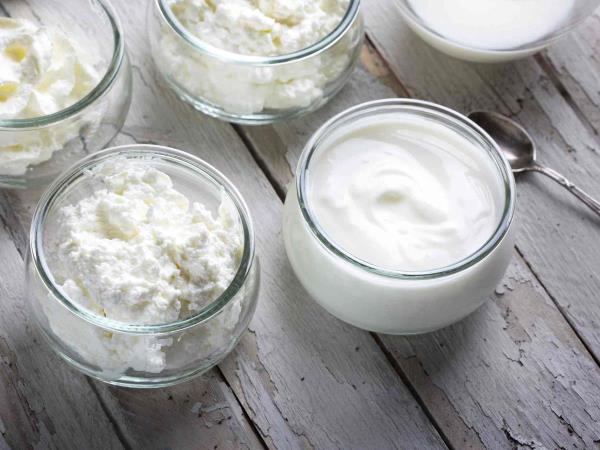 Our grandmothers didn't know what a microbiome was, but sauerkraut was a part of everyday life in every true farmstead. Today we know: the gut is our second brain, say scientists from Harvard University. It houses more than 100 trillion microorganisms that regulate not only digestion but also inflammatory responses in the body.
Our grandmothers didn't know what a microbiome was, but sauerkraut was a part of everyday life in every true farmstead. Today we know: the gut is our second brain, say scientists from Harvard University. It houses more than 100 trillion microorganisms that regulate not only digestion but also inflammatory responses in the body.
Yogurt with probiotics (beneficial bacteria that help regulate gut flora) can significantly reduce chronic inflammation. In a study published in Frontiers in Nutrition, individuals who consumed 250g of yogurt daily for 6 weeks showed reduced levels of C-reactive protein (CRP) – a blood marker that indicates the level of inflammation in the body.
If you're not a fan of sauerkraut or kefir, you can also try homemade yogurt or kombucha. Just make sure to choose natural products without added sugar – as sugar quickly ignites the inflammation fire. - Fish Swims, Inflammation Fades
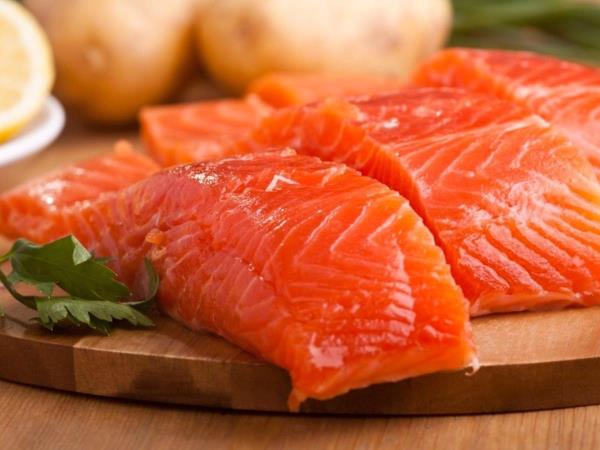 Fatty fish like salmon, sardines, and mackerel are not only delicious but also full of omega-3 fatty acids, which act as a firefighting system for inflammatory processes in the body. Omega-3s work by reducing the production of prostaglandins – these chemical substances that signal the body to trigger inflammation.
Fatty fish like salmon, sardines, and mackerel are not only delicious but also full of omega-3 fatty acids, which act as a firefighting system for inflammatory processes in the body. Omega-3s work by reducing the production of prostaglandins – these chemical substances that signal the body to trigger inflammation.
In the scientific journal Nutrition Research Reviews, it is mentioned that regular consumption of fatty fish (at least 2 times a week) reduces inflammatory markers in people with metabolic syndrome by more than 30%.
As fish are increasingly being removed from diets due to high prices, omega-3s can also be replaced with walnuts, chia seeds, and flaxseed oil. Just a spoonful of ground flaxseeds a day can provide sufficient amounts of alpha-linolenic acid (ALA), which is the plant form of omega-3. - Turmeric – Sun from the East
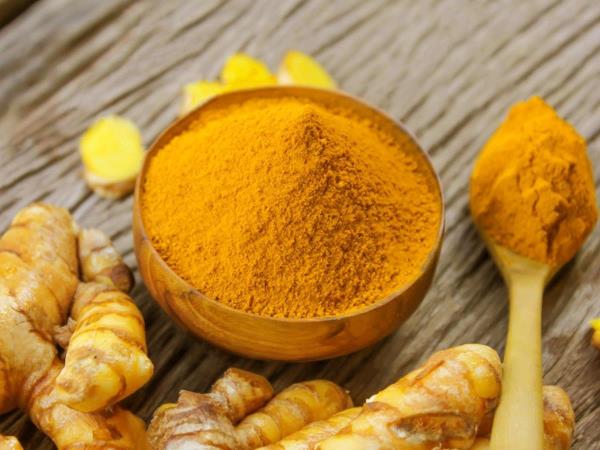 If you have ever cooked curry, you already know turmeric. This vibrant yellow spice has become a star among natural anti-inflammatory remedies due to the compound curcumin.
If you have ever cooked curry, you already know turmeric. This vibrant yellow spice has become a star among natural anti-inflammatory remedies due to the compound curcumin.
Curcumin is also known as healing gold, as it has the power to inhibit NF-kB, which is the main trigger of inflammatory processes in the body. The problem? Curcumin is poorly absorbed. But there is a solution: black pepper contains piperine, which increases curcumin absorption by up to 2000%, as confirmed by studies on PubMed Central.
For more serious effects, you can also consider curcumin dietary supplements – their concentration is higher than in the usual spice. Just make sure that the supplement always includes piperine or is in micelles form, otherwise most of the benefits will be lost. - Extra Virgin Olive Oil – A Drop of Wisdom from Sunny Hills
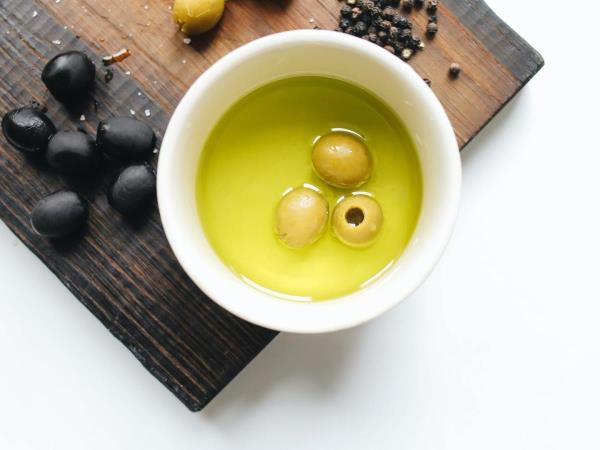 Olive oil is not just a condiment; it is almost like medicine. It is used every day in the Mediterranean diet – and this way of eating was declared UNESCO cultural heritage, besides, people from these regions are known for their longer lives.
Olive oil is not just a condiment; it is almost like medicine. It is used every day in the Mediterranean diet – and this way of eating was declared UNESCO cultural heritage, besides, people from these regions are known for their longer lives.
Why? Olive oil is full of oleocanthal, a compound that has a similar effect to ibuprofen – but without side effects. According to a study from the University of Pennsylvania, 50 ml of extra virgin olive oil (which is about three tablespoons) has a similar anti-inflammatory power as 10% of an ibuprofen dose taken for a headache.
However, not every oil is good – it is important that it is cold-pressed and unrefined, meaning it has not been treated with heat or chemicals. This way, it retains all its healing properties. - Dark Chocolate – Health with a Touch of Sweet Sin
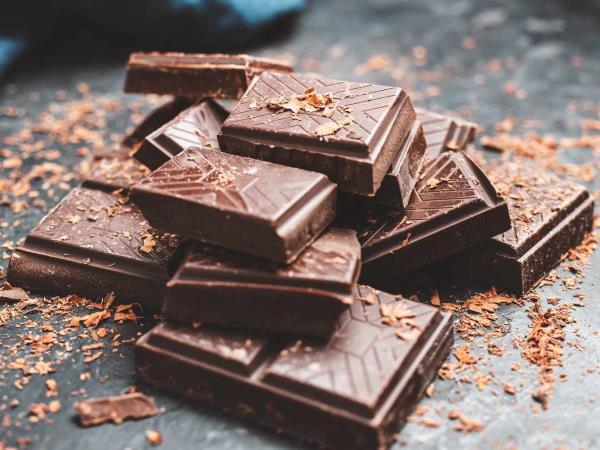 Lastly, a treat that holds a special place in many hearts – chocolate. But not just any chocolate. We are talking about dark chocolate containing at least 70% cocoa (preferably more). It contains flavonoids, antioxidants that prevent oxidative stress and reduce inflammation in the body.
Lastly, a treat that holds a special place in many hearts – chocolate. But not just any chocolate. We are talking about dark chocolate containing at least 70% cocoa (preferably more). It contains flavonoids, antioxidants that prevent oxidative stress and reduce inflammation in the body.
A study published in the American Journal of Clinical Nutrition showed that people who regularly consume small amounts of dark chocolate have lower CRP values. However, be careful – milk or sugar-added chocolate does not have the same effect and can even increase inflammation.
For maximum benefits, treat yourself to a square or two of high-quality dark chocolate every day, preferably with minimal added sugar and no dairy additives.
In a time when grocery products lure us with colorful packaging and sweet promises, it is essential to return to nature. Inflammation in the body is a silent force that can be soothed not only with medicines but also with the selection of foods that we put on our table every day.
Therefore, we highly recommend that you include more fermented foods, fatty fish, turmeric, olive oil, and dark chocolate in your diet – not because it is a trend, but because it is supported by science and confirmed by millennia-old traditions.
Your body will be grateful. And the next time you eat a piece of dark chocolate or enjoy a spoonful of yogurt, you will know – it is not just food. It is your natural shield against modern diseases.









 Would you like to be informed about news on the website?
Would you like to be informed about news on the website?

